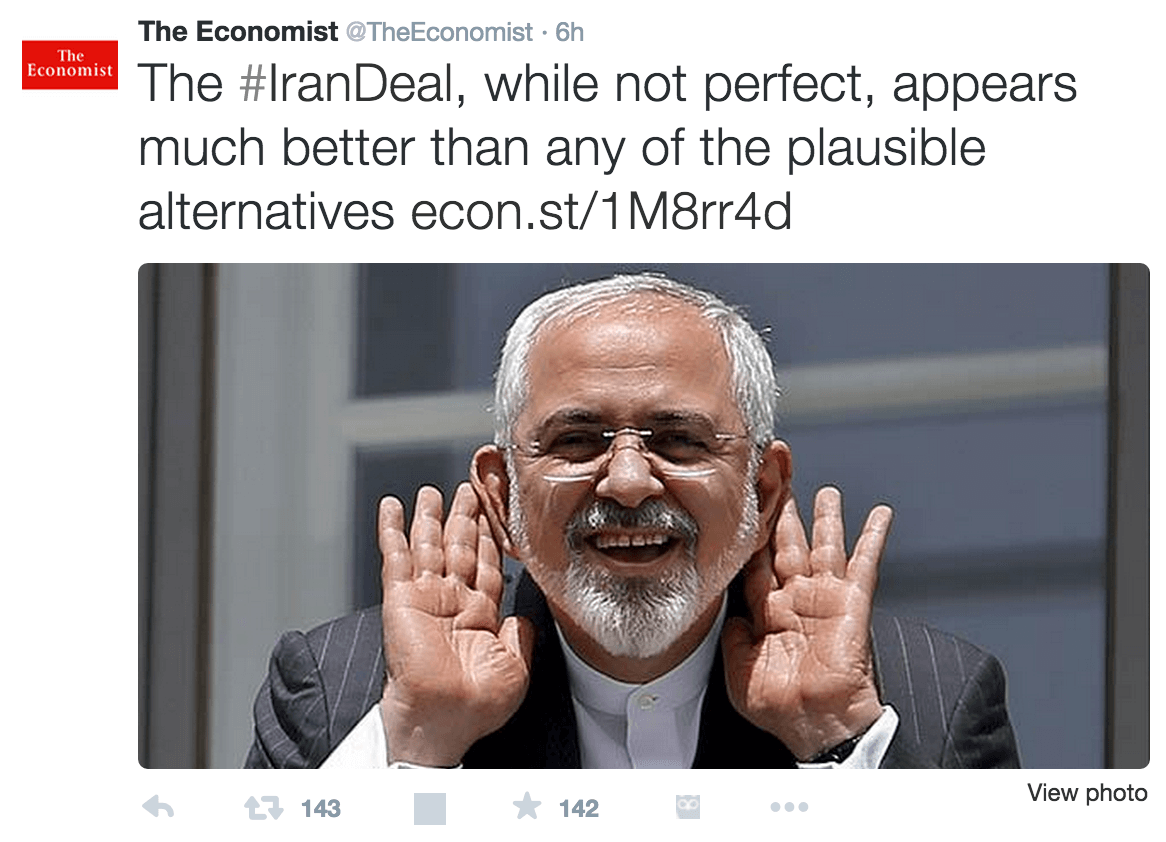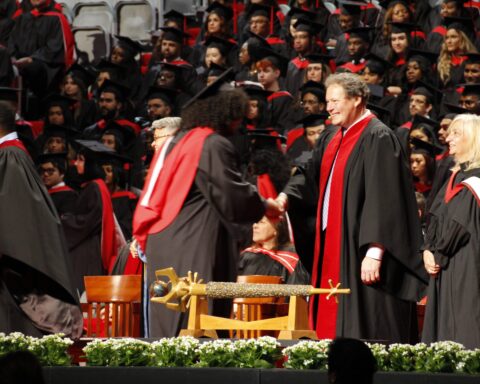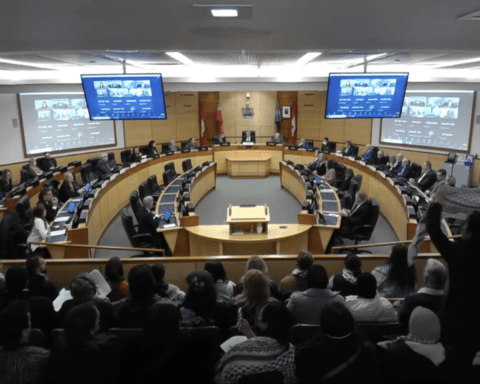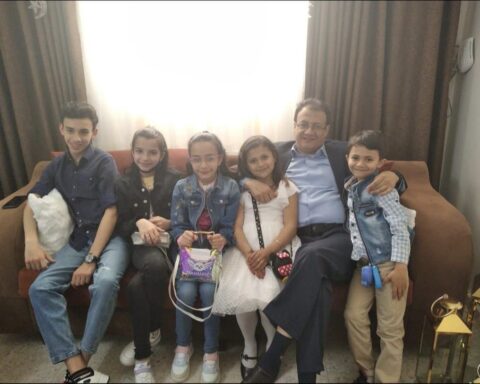After months of intense negotiations, Iran and the five permanent members of the United Nations (the United States, China, France, Russia and the United Kingdom), plus Germany, struck a deal.
The six countries agreed to lift sanctions on Iran earlier this week on the condition that the country’s nuclear program was to be regulated to prevent the development of nuclear weapons.
The accord not only signals the beginning of the end to the diplomatic and economic isolation of the Iranian regime, but also for many Iranian-Canadians it marks the beginning of restoration of ties between their homeland and the West.
In a survey of just over 200 Iranians living across Canada, the [Iranian Canadian Congress] found that 80 per cent viewed the agreement favourably and felt it would benefit them.
“Many Iranian-Canadians feel an agreement is the best opportunity to avoid a devastating war,” announced Arsalan Kahnemuyipour, president of the Iranian Canadian Congress (ICC), in a statement released Tuesday. “Also, many of those in favour of a nuclear agreement believe a negotiated deal will lift the sanctions on Iran, which will improve economic well being of the Iranian people.”
In a survey of just over 200 Iranians living across Canada, the ICC found that 80 per cent viewed the agreement favourably and felt it would benefit them.
Saeed Rahnema, a professor of political science and public policy at York University, agrees the deal will be positive for the region.
“If there was no deal, there would have been more sanctions and the Iranian regime would have resorted to other means,” says Rahnema. This would have created more problems for the U.S. and its allies, eventually leading to another war in the region, he adds.
“Some believe that a nuclear agreement will not have any impact on the human rights condition in Iran or will result in a strengthened Islamic Republic of Iran becoming even less considerate of people’s rights.” – Arsalan Kahnemuyipour, Iranian Canadian Congress
The ICC and others continue to express doubts, however, over the impact the nuclear deal will have on efforts to improve human rights in Iran.
“Some believe that a nuclear agreement will not have any impact on the human rights condition in Iran or will result in a strengthened Islamic Republic of Iran becoming even less considerate of people’s rights,” Kahnemuyipour adds. “Others believe that the economic benefits will lead to a strengthening of the middle class – the back bone of any progressive change – ultimately leading to an improvement in individual freedoms and human rights in the country.”
 Sayeh Hassan, an Iranian-Canadian lawyer and blogger from Toronto, criticizes what she calls a U.S. agreement with an ‘Islamic dictatorship’. In one tweet, she writes: “#Iran will continue public execution, torture of political dissidents and oppression of religious minorities #IranDealVienna Successful Deal.”
Sayeh Hassan, an Iranian-Canadian lawyer and blogger from Toronto, criticizes what she calls a U.S. agreement with an ‘Islamic dictatorship’. In one tweet, she writes: “#Iran will continue public execution, torture of political dissidents and oppression of religious minorities #IranDealVienna Successful Deal.”
Rahnema agrees.
“A major weakness of the deal is that it has no provision preventing the Iranian regime from its continuous abuse of human rights against Iranians,” he contends. “Obviously the U.S. government, and the Troika (a three-part commission comprised of the European Central Bank, European Commission and the International Monetary Fund) couldn’t care less about human rights in Iran, and Iranian opposition outside the country was incapable of demanding this.”
Canada-Iran relations at a stalemate
For some Iranian-Canadians, the punitive sanctions on Iran have significantly restricted their connection to family members back home.
Arash Abadpour, a research scientist and blogger based in Kitchener, Ont., finds that the lack of political relations between Canada and Iran has been rather detrimental for the Iranian-Canadian community. “Iran doesn’t have an embassy and as an Iranian-Canadian that hurts me because I want to be able to participate in the elections and I cannot.”
Similarly, Reza Ashkevari, a realtor in the Greater Toronto Area, believes that the economic impact on Iranians, including Iranian-Canadians has been dire. “My parents have property in Iran and collect retirement income from it,” says Ashkevari, “but because the value of the Iranian currency is dropping drastically, my parents are becoming poorer and poorer.”
“Canada’s position and policies on Iran are very much influenced by its close relationship with Israel. So its position will be different from its American and European allies, but will eventually change.” – Saeed Rahnema, York University professor
The lack of positive relations between the two countries can also negatively impact Iranian-Canadian families. “One of my sisters is living in Iran and she applied for a visa for herself and her family,” explains Ashkevari. “One of the effects is that I haven’t seen my sister in 15 years.”
Canada-Iran relations continue to be at a stalemate. A statement released Tuesday by Canadian Foreign Affairs Minister Rob Nicholson said: “[Canada] will continue to judge Iran by its actions not its words,” and that the federal government will examine the agreement carefully before making any policy changes. It’s a view echoed by Israel, a close ally of the current Canadian administration.
“Canada’s position and policies on Iran are very much influenced by its close relationship with Israel,” Rahnema says. “So its position will be different from its American and European allies, but will eventually change.”
 ‘Moon landing’ moment
‘Moon landing’ moment
On Twitter the #IranDeal is inundated with tweets praising the agreement as “historic” and an example of diplomacy succeeding over armed conflict.
The Economist magazine tweeted that while the Iran deal was “not perfect, [it] appears much better than any plausible alternatives.”
One Iranian student, Nima, tweeted, “I won’t forget today. This is our generation’s “moon landing” moment.” And an Iranian based in Tehran, Milad Mansoori, tweeted, “We will come back to our golden ages… Say Hello to world… I am Iranian. Thanks @JZarif @JohnKerry #IranDeal #IranWinsPeace.”
Abadpour confirms that the response on Facebook and Twitter from Iranians has been overwhelmingly positive.
“After the Green Movement (the political movement that arose after the 2009 Iranian presidential election) you could definitely see a lot of pessimistic views that nothing is going to happen and there is no hope. It was just going to be a disaster all around,” he explains. “But now with this we can definitely see some hope coming back.”
Rahnema is also cautiously optimistic. “It is hard to anticipate what will happen after 10 years,” he says, “but I think there will be changes in Iran for the better.”




